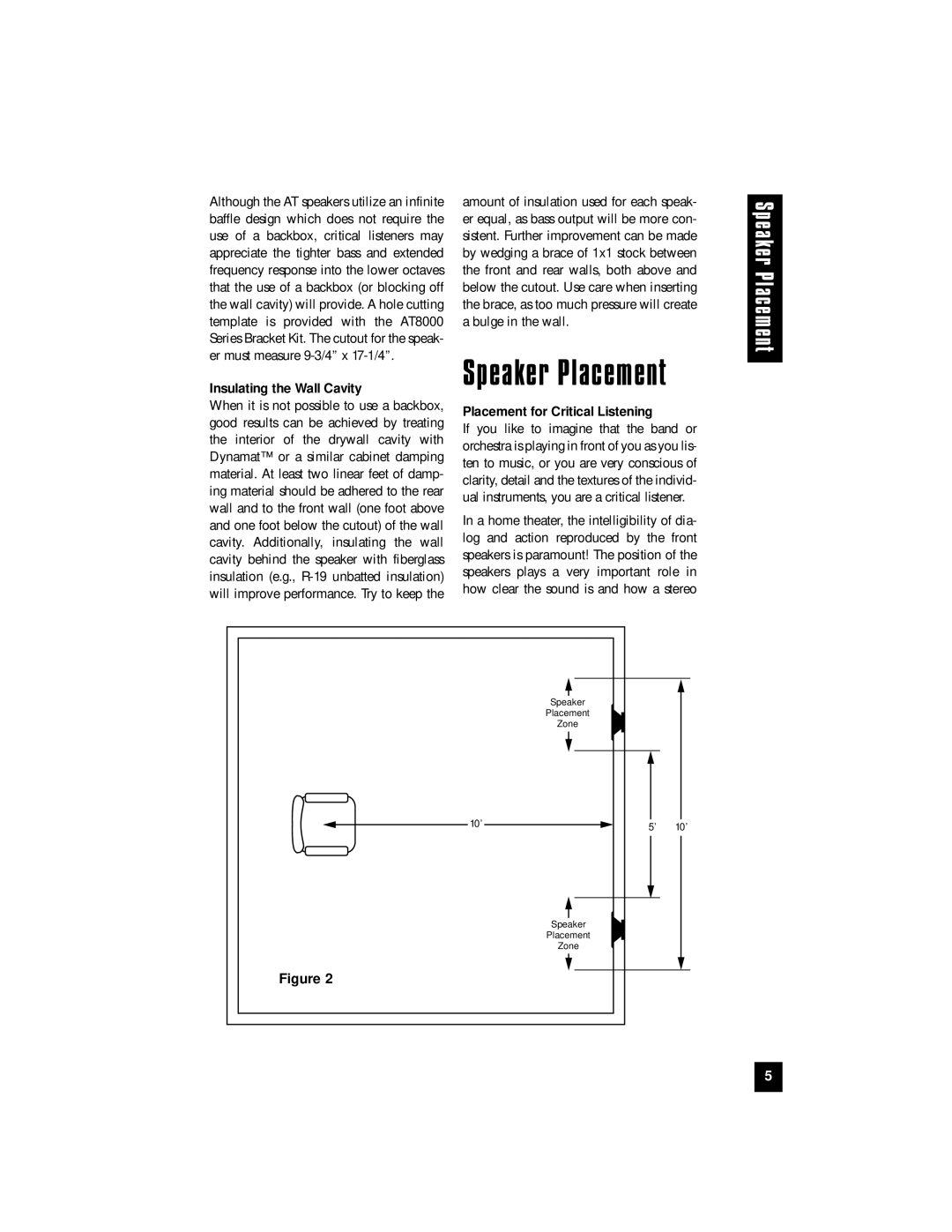
Although the AT speakers utilize an infinite baffle design which does not require the use of a backbox, critical listeners may appreciate the tighter bass and extended frequency response into the lower octaves that the use of a backbox (or blocking off the wall cavity) will provide. A hole cutting template is provided with the AT8000 Series Bracket Kit. The cutout for the speak- er must measure
Insulating the Wall Cavity
When it is not possible to use a backbox, good results can be achieved by treating the interior of the drywall cavity with Dynamat™ or a similar cabinet damping material. At least two linear feet of damp- ing material should be adhered to the rear wall and to the front wall (one foot above and one foot below the cutout) of the wall cavity. Additionally, insulating the wall cavity behind the speaker with fiberglass insulation (e.g.,
amount of insulation used for each speak- er equal, as bass output will be more con- sistent. Further improvement can be made by wedging a brace of 1x1 stock between the front and rear walls, both above and below the cutout. Use care when inserting the brace, as too much pressure will create a bulge in the wall.
Speaker Placement
Placement for Critical Listening
If you like to imagine that the band or orchestra is playing in front of you as you lis- ten to music, or you are very conscious of clarity, detail and the textures of the individ- ual instruments, you are a critical listener.
In a home theater, the intelligibility of dia- log and action reproduced by the front speakers is paramount! The position of the speakers plays a very important role in how clear the sound is and how a stereo
Speaker Placement
| Speaker |
|
| Placement |
|
| Zone |
|
10’ | 5’ | 10’ |
| ||
| Speaker |
|
| Placement |
|
| Zone |
|
Figure 2 |
|
|
5
